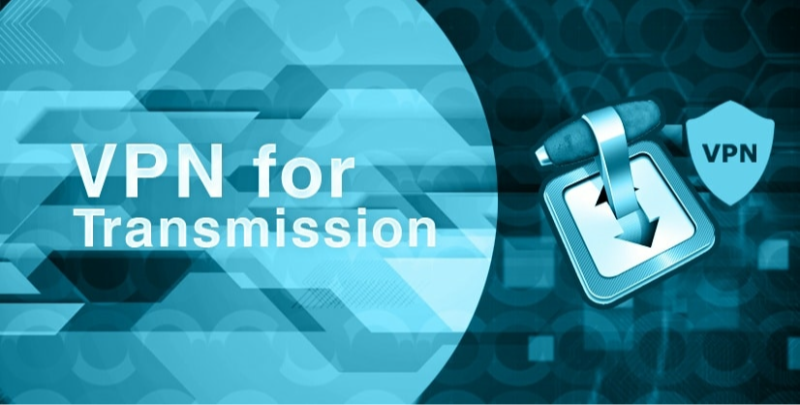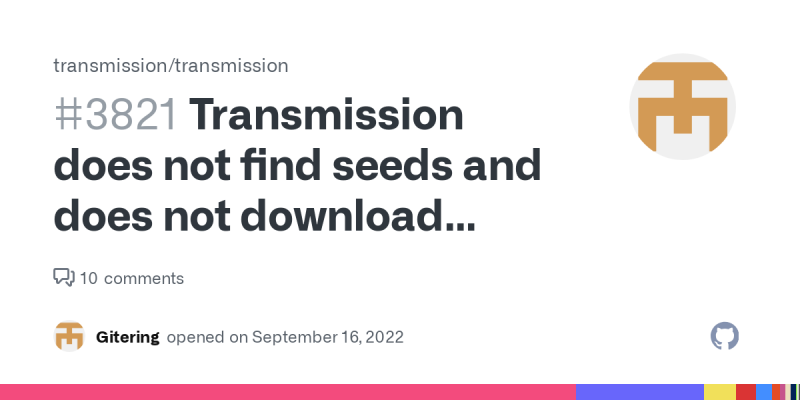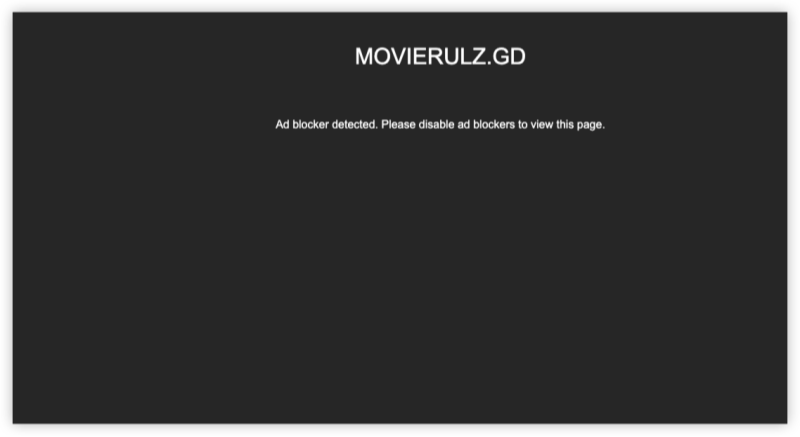What Is Transmission? Is it Legal to Use?
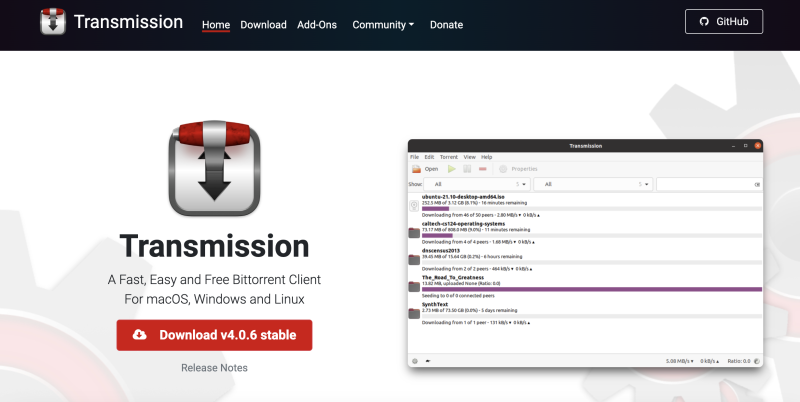
Transmission is an open-source BitTorrent client. It runs on Windows, macOS, and Linux. Many choose Transmission for its simple interface, low resource use, and active community support. It lets users download and share files via the BitTorrent network.
Is Transmission Safe in terms of legality? The client itself is legal. Using Transmission to download or share content can be legal or illegal depending on the files. Downloading open-source software, public-domain content, or files you own is legal. Downloading copyrighted movies, music, or software without permission is not legal. Laws vary by region. You must confirm local rules before using Transmission. Asking “Is Transmission Safe” legally means using it only for permitted content. If you stick to legal torrents, Transmission is safe to use in that sense.
Is Transmission Safe? Common Security and Privacy Concerns
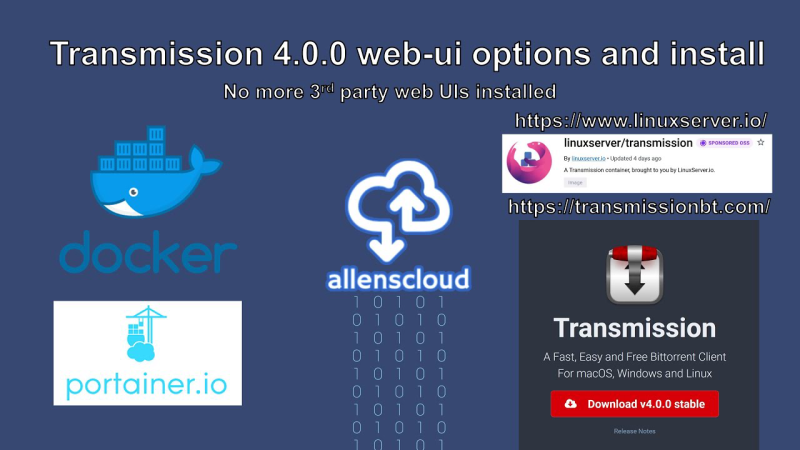
When users wonder “Is Transmission Safe,” they often refer to security and privacy risk. Below are main concerns:
-
IP Exposure
-
In torrent networks, peers see each other’s IP addresses. Exposed IP can reveal your general location or identity if correlated with other data. A Transmission VPN or VPN for Transmission hides your real IP behind the VPN server’s IP. This reduces tracking risk.
-
-
Malicious or Fake Torrents
-
Torrents from untrusted sources may include harmful files. Downloading them can infect your device. Always verify torrent origin. Use checksum or comments on trusted sites to confirm integrity.
-
-
Client Vulnerabilities
-
Outdated Transmission versions may have security flaws. Plugins or remote access features may open attack vectors if misconfigured. Keeping Transmission updated reduces these risks.
-
-
DNS or IPv6 Leaks
-
Without proper settings, DNS queries might go outside VPN or use IPv6 paths that bypass the VPN. Leaks can expose activity. A secure Transmission VPN setup addresses these leaks.
-
-
ISP Throttling or Blocking
-
Some ISPs detect torrent traffic and throttle speeds or block connections. Users may wonder “Is Transmission Safe?” because slow speeds or blocked access degrade experience. A VPN for Transmission can hide torrent traffic from ISP filters.
-
-
Public Network Risks
-
Using Transmission on public Wi-Fi without protection exposes data to local attackers. A Transmission VPN secures the connection and encrypts traffic, making it safe on public networks.
-
-
Misconfigured Remote Access
-
Transmission offers remote control features. If left open or with weak credentials, attackers may hijack the client. Ensuring remote access is disabled or secured is key.
-
Understanding these risks helps answer “Is Transmission Safe” in terms of security. Next, we show how to make Transmission safe using secure settings and a VPN.
How to Make Transmission Safe: Using VPN and Secure Configurations
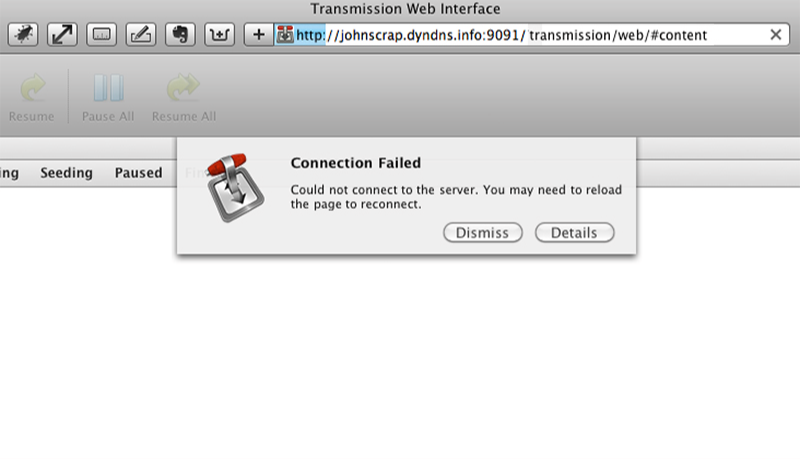
To ensure “Is Transmission Safe” in practice, apply the following measures. This section shows how to use a VPN for Transmission and other secure configurations.
-
Download UFO VPN for Secure Transmission Usage
-
Step 1Download UFO VPN for WindowsGrab the free Windows VPN installer right below. UFO VPN is lightweight and secure on all Windows systems. Double-click the downloaded file and complete the installation. Once installed, launch UFO VPN.
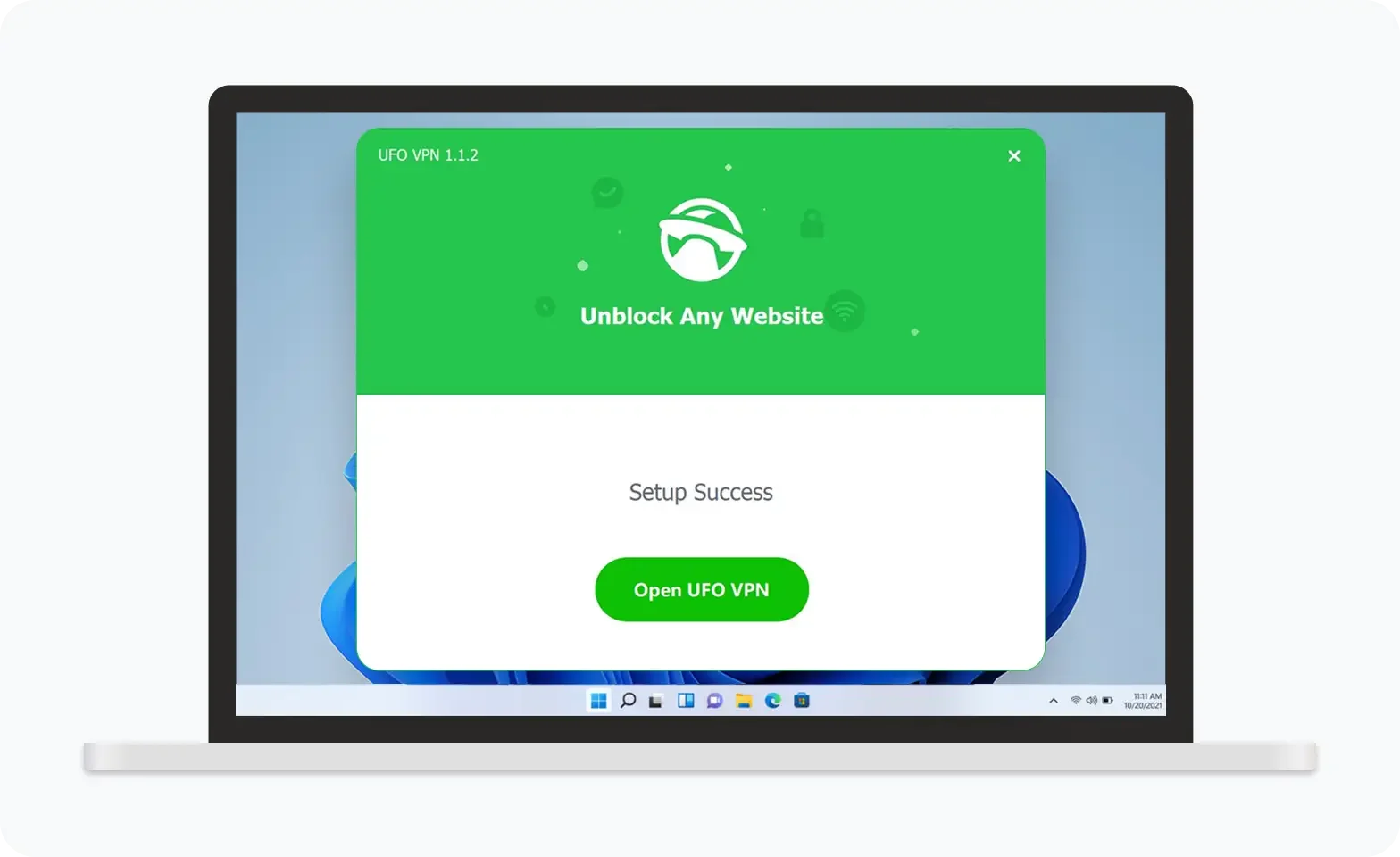 Step 2Select a VPN ServerInside the app, you can click the "Connect" button for quick connection, or browse the list of servers by Location or categroy: Video& Stream, Game, etc. Choosing the right server ensures fast speeds and smooth access.
Step 2Select a VPN ServerInside the app, you can click the "Connect" button for quick connection, or browse the list of servers by Location or categroy: Video& Stream, Game, etc. Choosing the right server ensures fast speeds and smooth access.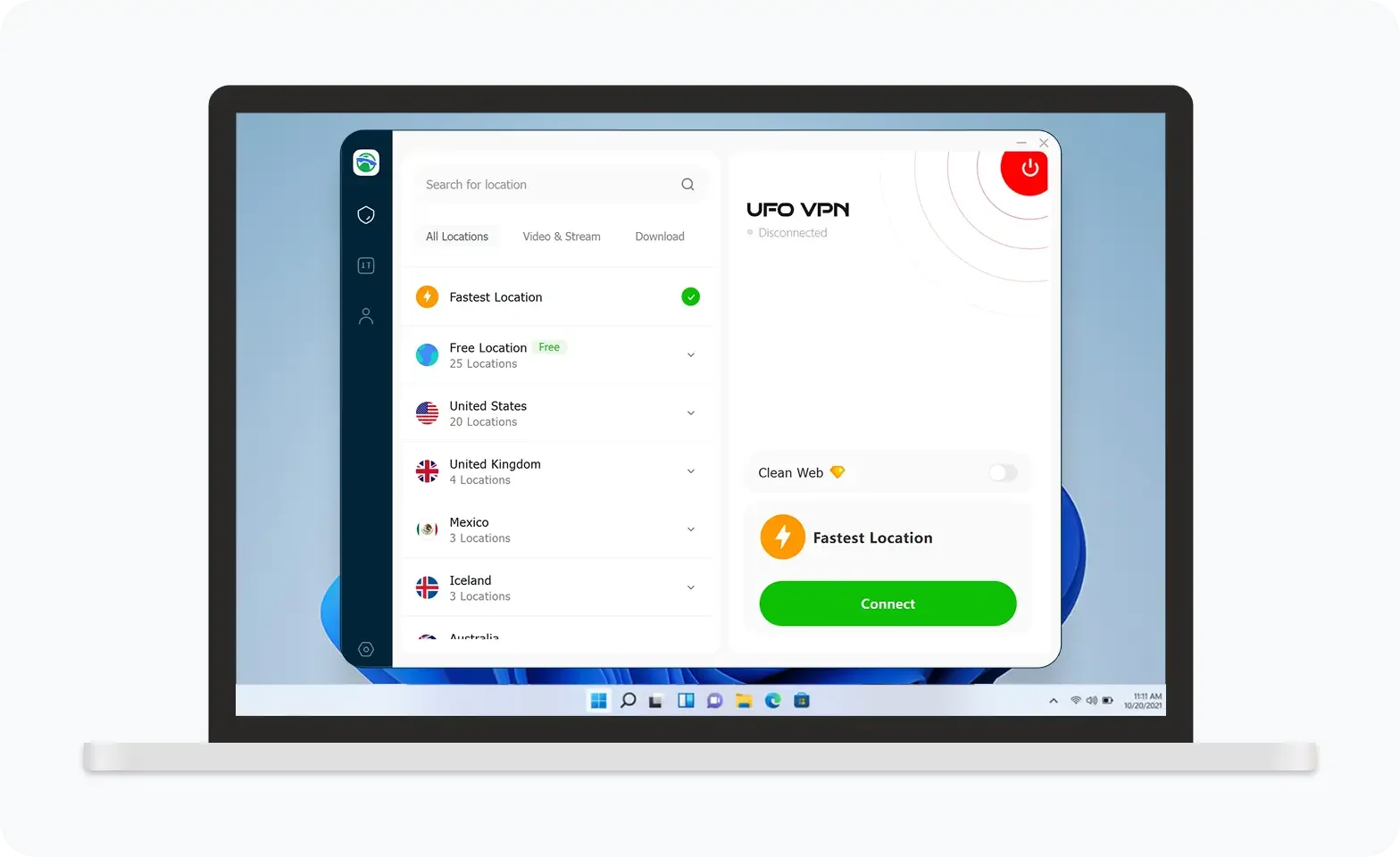
UFO VPN is an all-in-one VPN that offers unlimited access to 4D streaming like Netlfix, Disney Plus, no-ping gaming as PUBG, Roblox, CODM and social networking for YouTube, X, Facebook and more.
Step 3Enable Advanced FeaturesIn addition to basic functions, we recommend you turn on extra protections via Ad Blocker and features like Kill Switch, Split Tunneling and Smart Hop. Users can optimize online gaming/streaming/chatting as much as possible.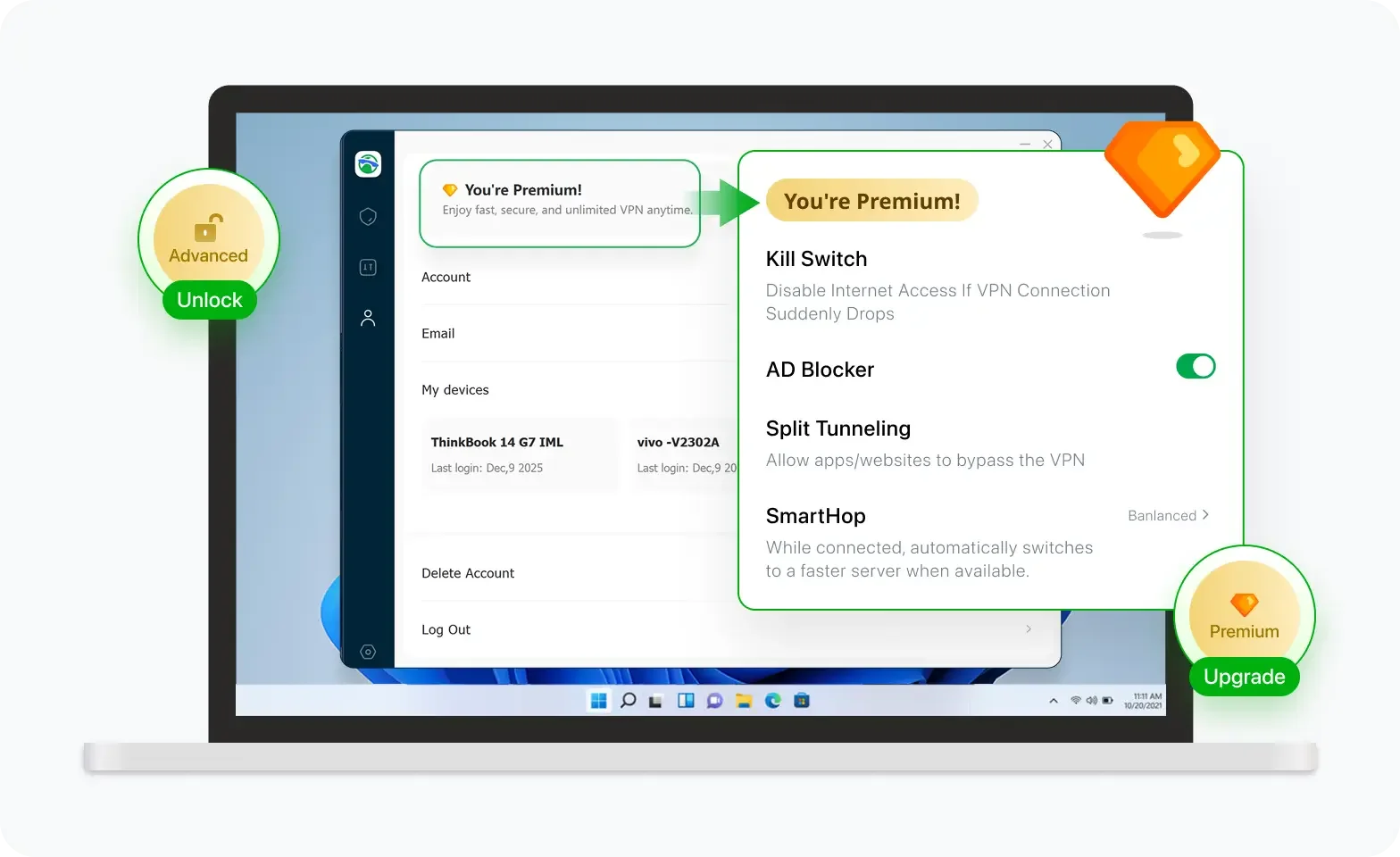 Step 4Check Your New IPUse UFO VPN's built-in " What is My IP" feature to see your new IP address and location. This confirms your VPN is working, hides your real IP, and ensures privacy while browsing.
Step 4Check Your New IPUse UFO VPN's built-in " What is My IP" feature to see your new IP address and location. This confirms your VPN is working, hides your real IP, and ensures privacy while browsing.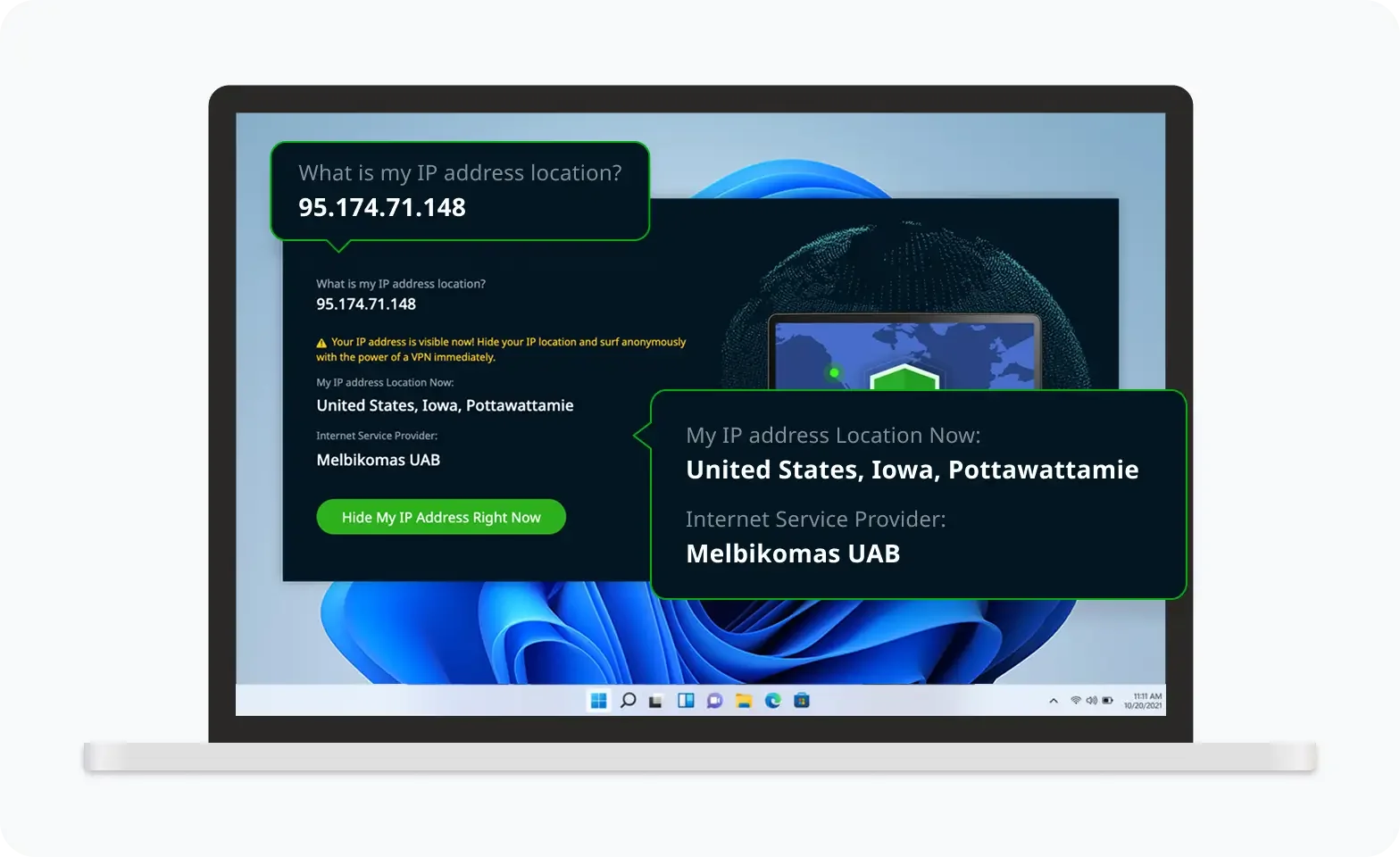 Step 1 Download and install UFO VPN for macOSClick the button below to download offcial Mac VPN free. Open the .dmg file, drag UFO VPN to your Applications folder, and launch it. You're just a few clicks away from secure browsing.
Step 1 Download and install UFO VPN for macOSClick the button below to download offcial Mac VPN free. Open the .dmg file, drag UFO VPN to your Applications folder, and launch it. You're just a few clicks away from secure browsing.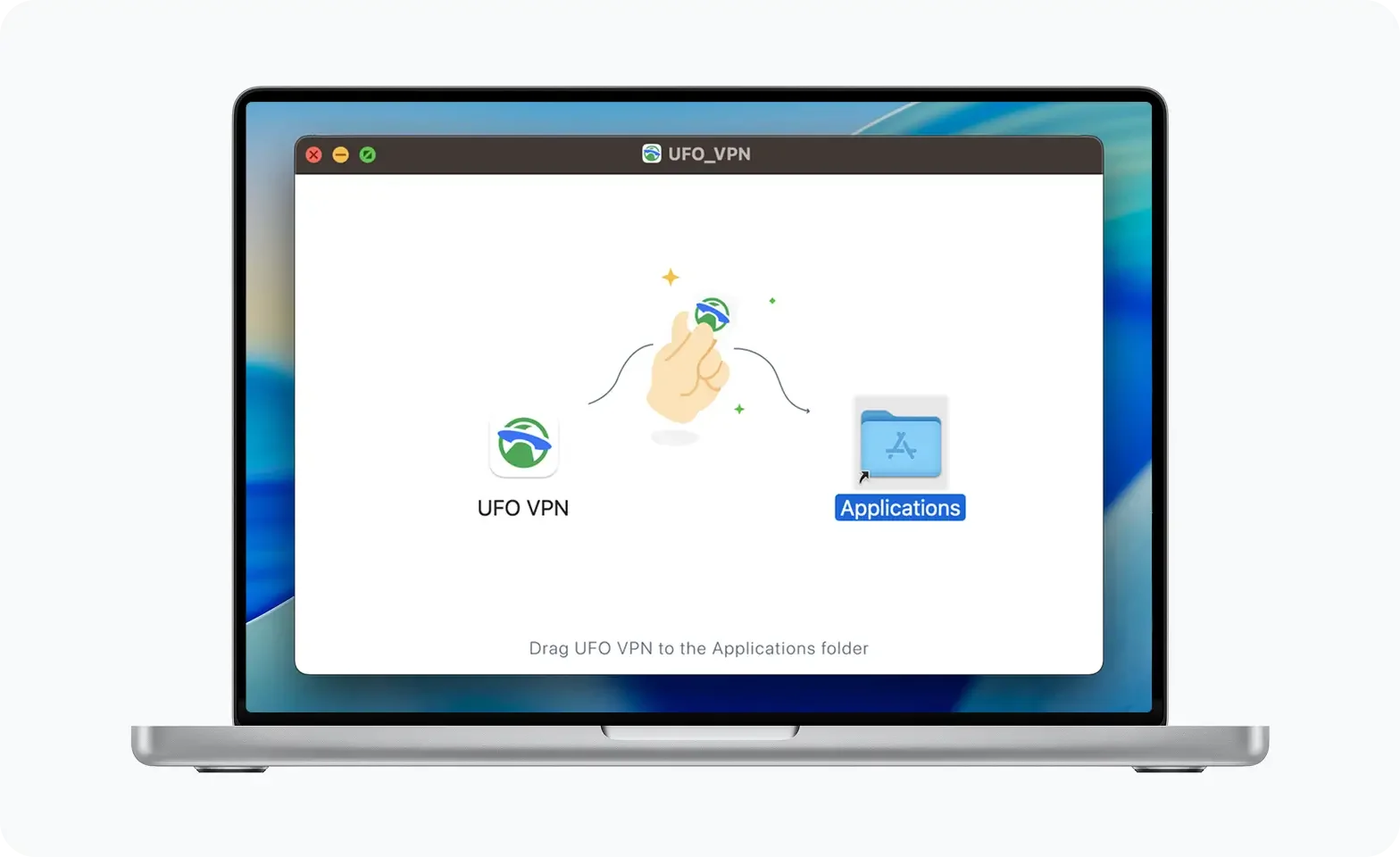 Step 2 Pick Your IP ServerTap "Connect" button for the fastest server automatically. Or you can select a server from the global server list in 100+ countries. UFO VPN is an UFO VPN is an all-in-one VPN or gaming, video streaming, social platforms, and AI tools.
Step 2 Pick Your IP ServerTap "Connect" button for the fastest server automatically. Or you can select a server from the global server list in 100+ countries. UFO VPN is an UFO VPN is an all-in-one VPN or gaming, video streaming, social platforms, and AI tools.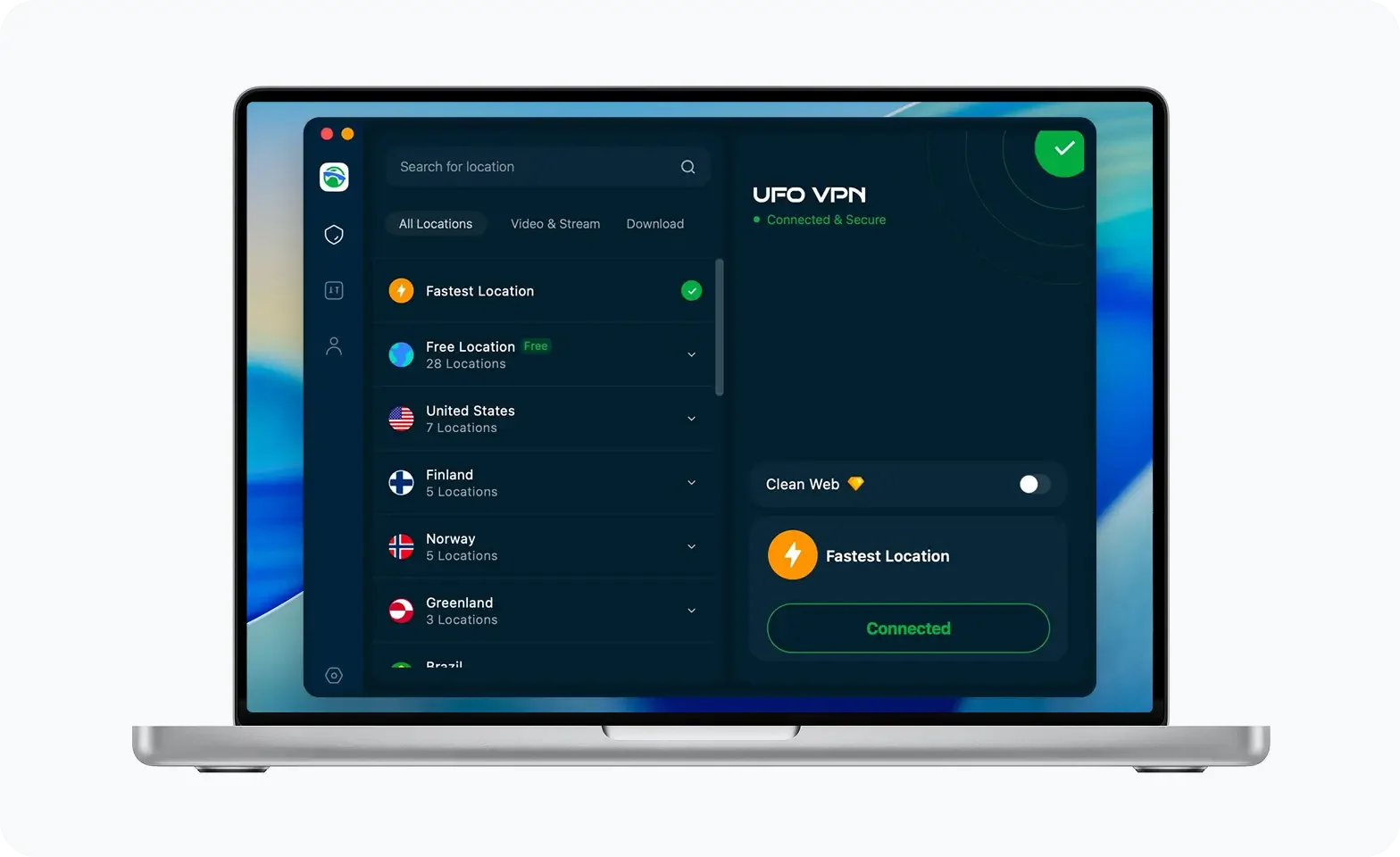 Step 3
Step 3Unlock Pro Features
If you have upgraded to premium plan , feel free to enjoy premium servers for 4K streaming and advanced features like Kill Switch, Split Tunneling, and gaming acceleration. Your Mac is now fully optimized and protected. Inaddition to basic functions, we recommend you turn on
 Step 4
Step 4Verify Your IP Now
Use UFO VPN's " What is My IP " feature to see your new IP and location. This confirms your connection is secure, anonymous, and ready for safe browsing online anywhere at any time.
 Step 1 Download and install UFO VPN for iPhone/iPadDownload this free iOS VPN via official link or App Store. Once installed, launch the app to get started. UFO VPN is now trusted by over 2 million users worldwide with optimzed service.
Step 1 Download and install UFO VPN for iPhone/iPadDownload this free iOS VPN via official link or App Store. Once installed, launch the app to get started. UFO VPN is now trusted by over 2 million users worldwide with optimzed service.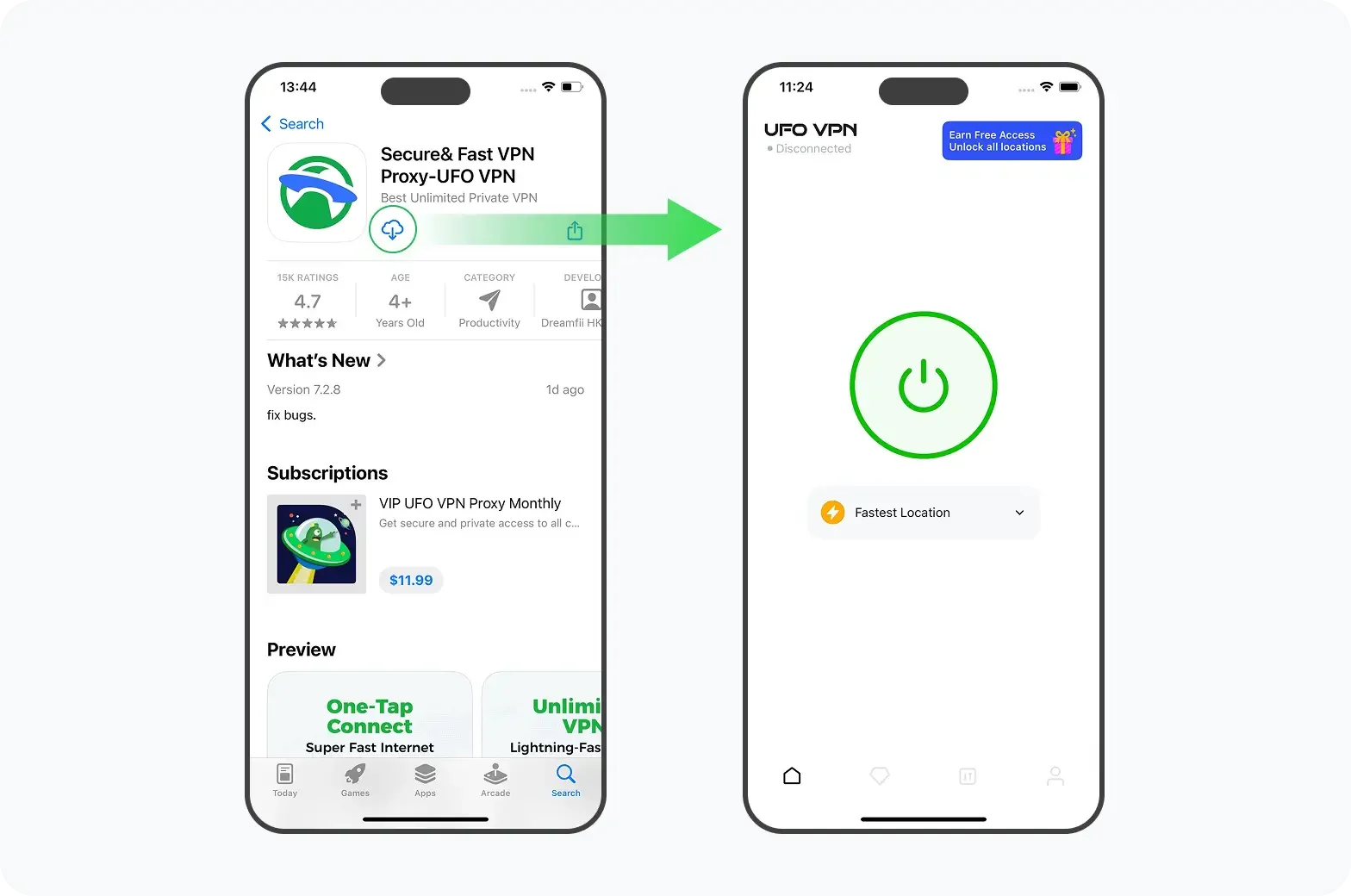 Step 2 Select a Perfect ServerHit "Connect" button for the fastest server near you instantly. Or you can choose a favorite location/platform from the server list manually for full control. UFO VPN is an all-in-one VPN companion for gaming, streaming, social media, and AI tools.
Step 2 Select a Perfect ServerHit "Connect" button for the fastest server near you instantly. Or you can choose a favorite location/platform from the server list manually for full control. UFO VPN is an all-in-one VPN companion for gaming, streaming, social media, and AI tools.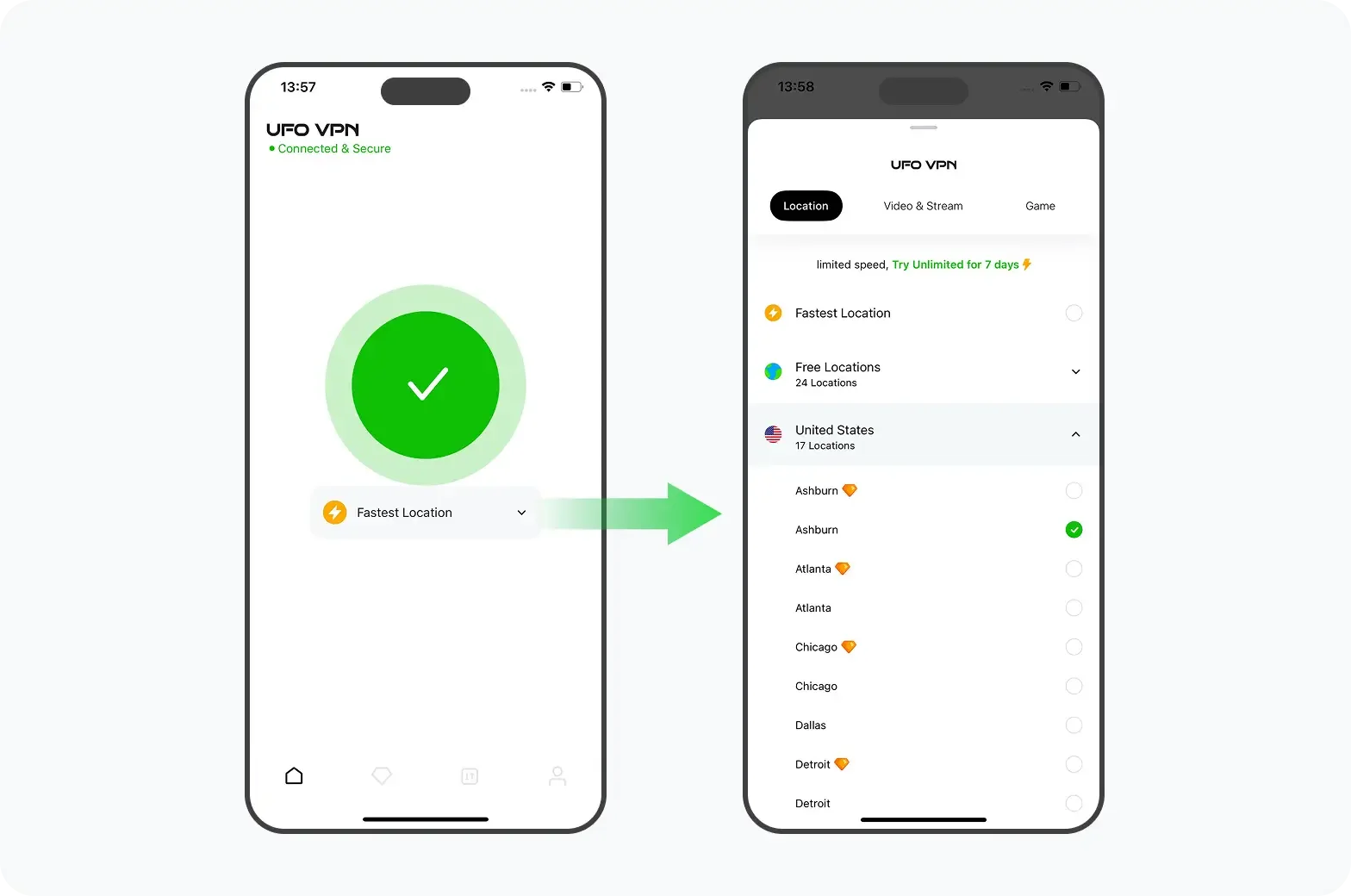 Step 3 Lookup IP and Enable Pro FeaturesNow you can check your current IP via built-in IP lookup tool. Pro features in premium plan offer you premium servers, blazing speeds, Kill Switch, Split Tunneling, and Multi-device login, so you can protect your iPhone, iPad, and other Apple devices all at once.
Step 3 Lookup IP and Enable Pro FeaturesNow you can check your current IP via built-in IP lookup tool. Pro features in premium plan offer you premium servers, blazing speeds, Kill Switch, Split Tunneling, and Multi-device login, so you can protect your iPhone, iPad, and other Apple devices all at once.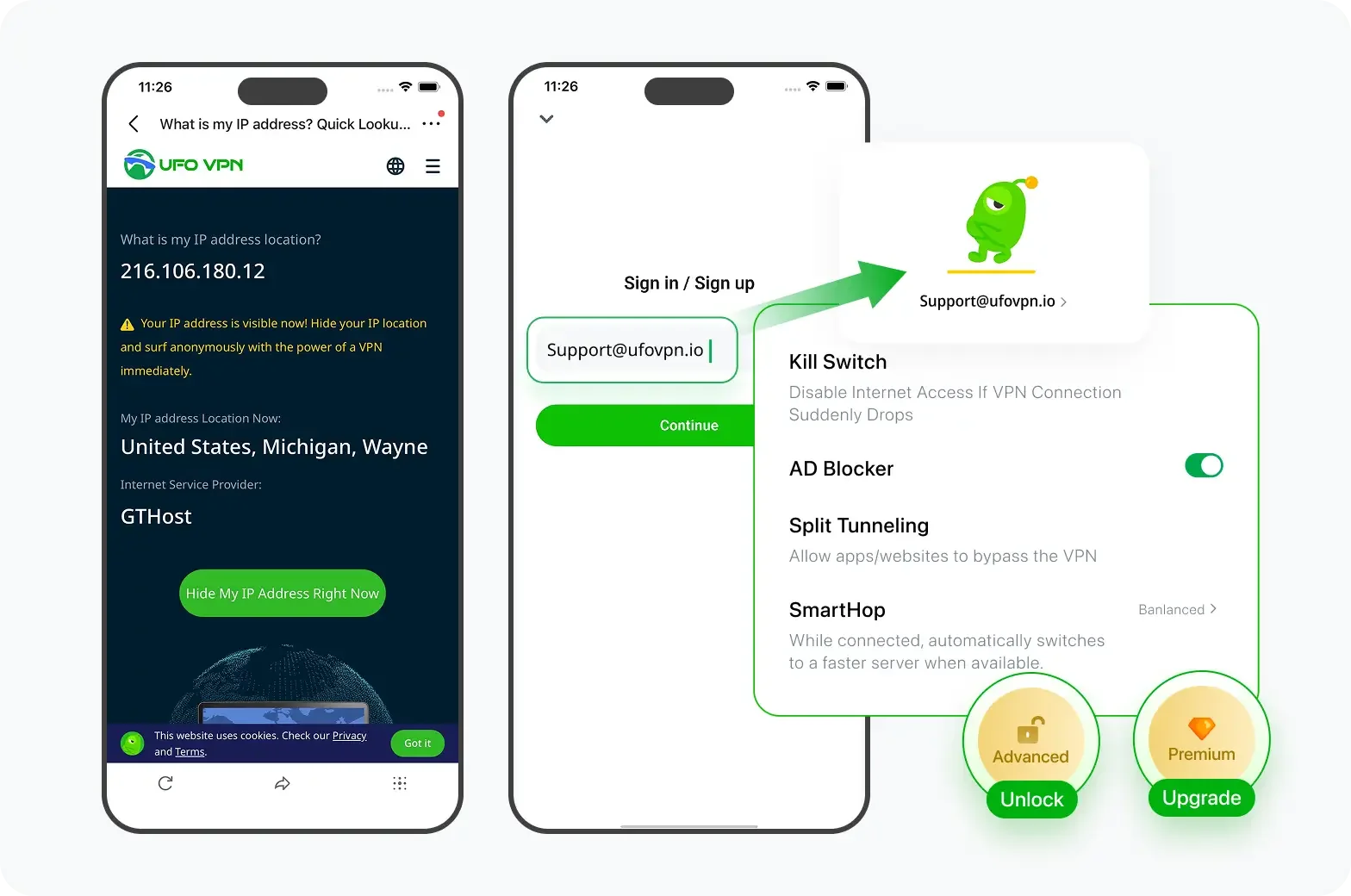 Step 1 install UFO VPN for AndroidGet free Android VPN from offcial website or Google Play Store. Follow the instructions for easy download. Then open the app and get ready to surf safely.
Step 1 install UFO VPN for AndroidGet free Android VPN from offcial website or Google Play Store. Follow the instructions for easy download. Then open the app and get ready to surf safely.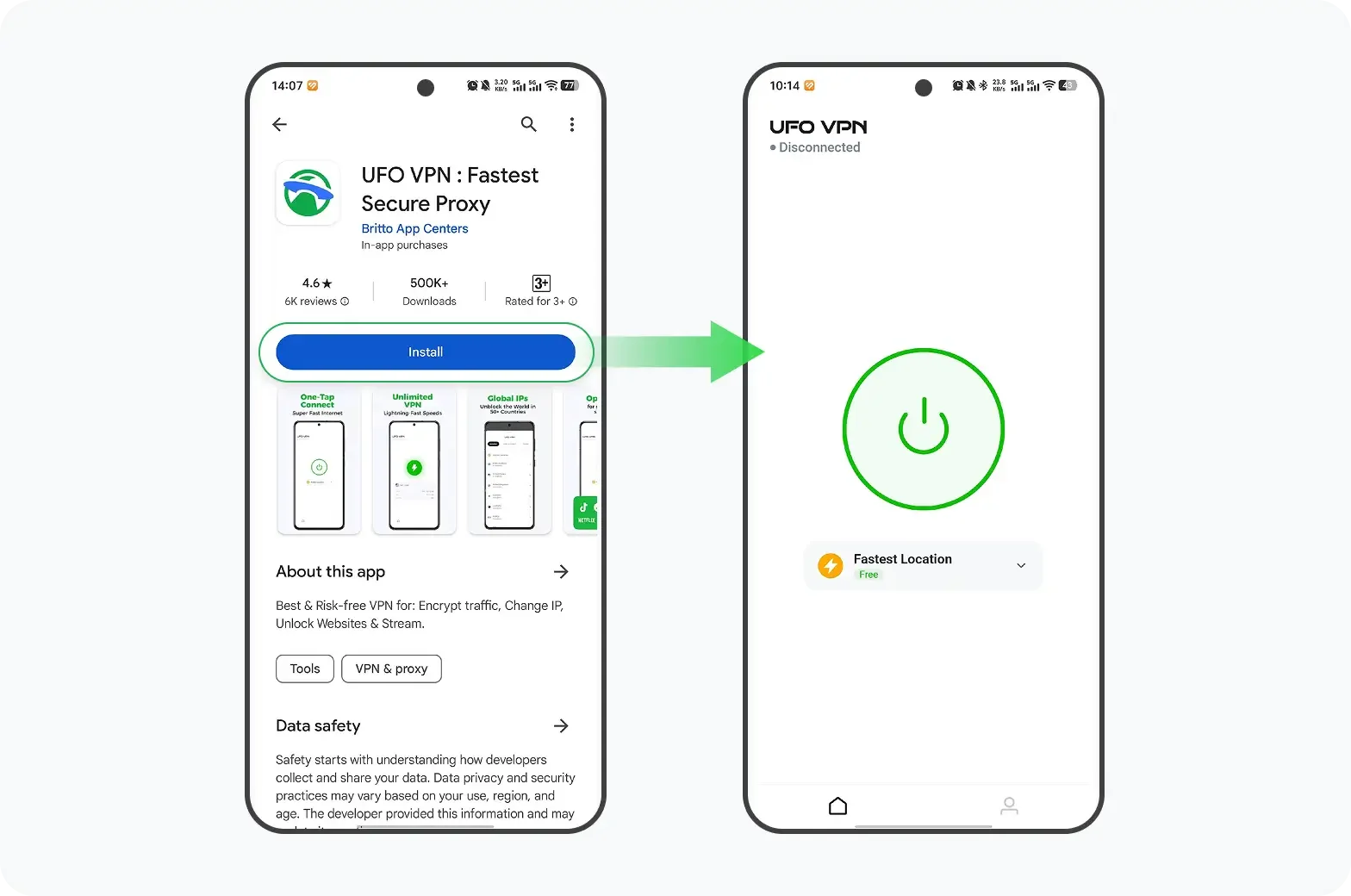 Step 2 Choose Your Ideal ServerUFO VPN is an all-in-one powerhouse for gaming, video streaming, social apps, and AI tools. The"Connect" button links you to the fastest server instantly, or you can choose among the server list manually via Location/ Video&Stream/Games for easy access.
Step 2 Choose Your Ideal ServerUFO VPN is an all-in-one powerhouse for gaming, video streaming, social apps, and AI tools. The"Connect" button links you to the fastest server instantly, or you can choose among the server list manually via Location/ Video&Stream/Games for easy access.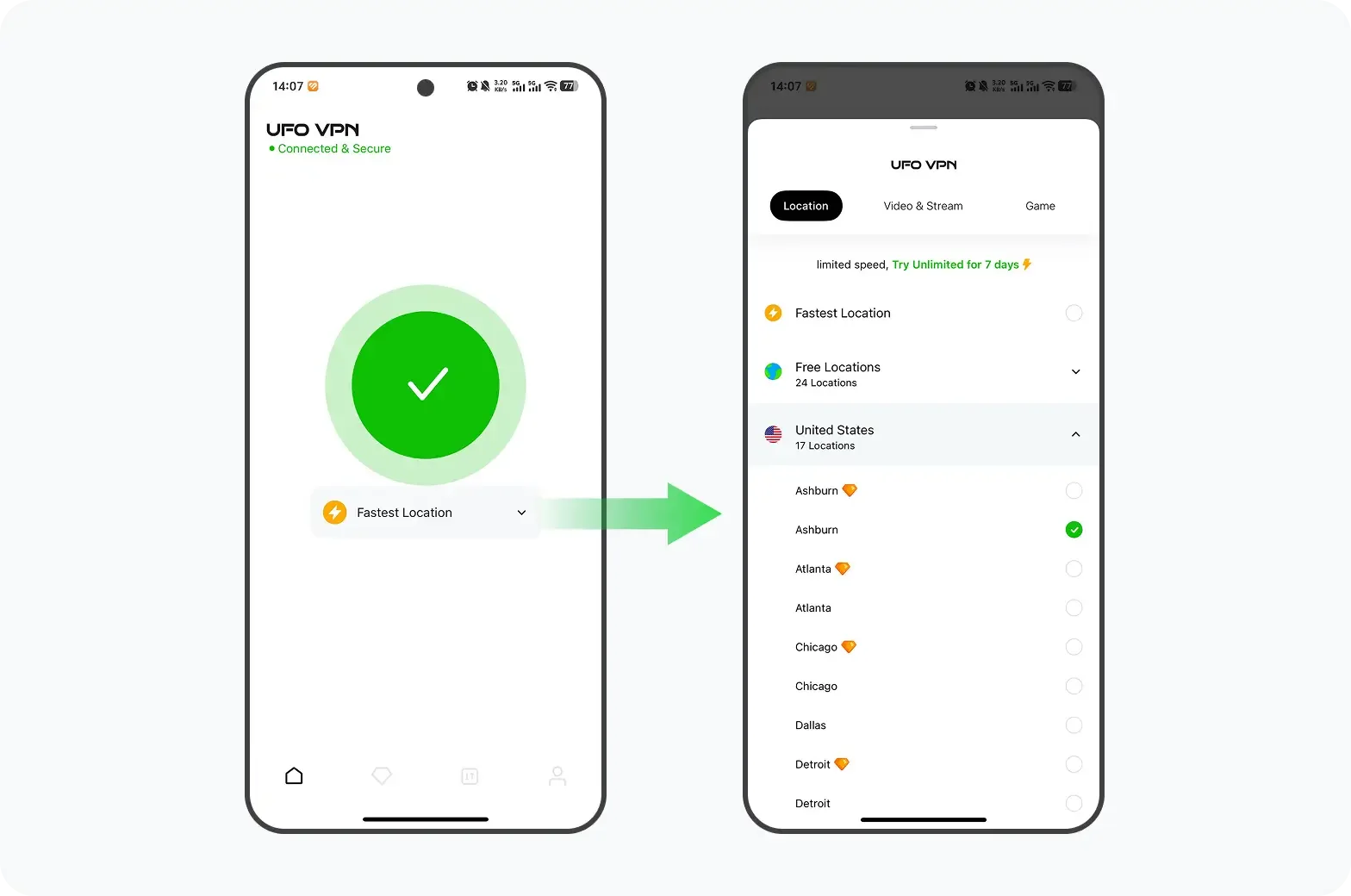 Step 3 Power Up Pro FeaturesPro users can look up current IP via built-in "What Is My IP" feature, and unlock premium features like 4K servers, turbo speeds, Kill Switch, Split Tunneling, and Multi-device login, keeping all your Android phones, tablets, and other devices safe at once.
Step 3 Power Up Pro FeaturesPro users can look up current IP via built-in "What Is My IP" feature, and unlock premium features like 4K servers, turbo speeds, Kill Switch, Split Tunneling, and Multi-device login, keeping all your Android phones, tablets, and other devices safe at once.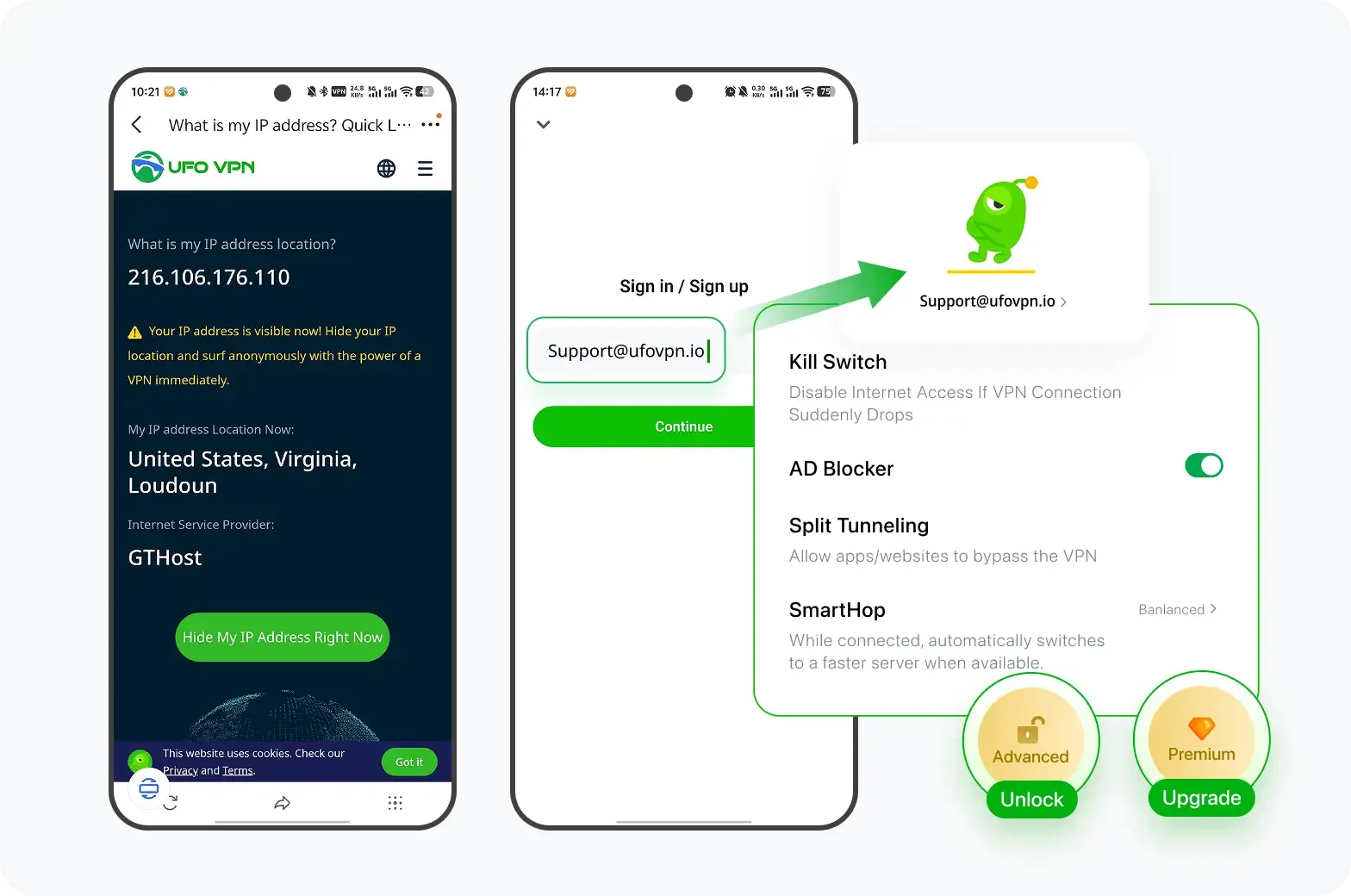
-
-
Update Transmission Regularly
-
Always install the latest Transmission version. Updates patch security flaws. On Linux, use official repositories or download from the project site. On Windows/macOS, get the installer from the official source.
-
-
Disable or Secure Remote Access
-
If you do not use Transmission’s remote control (RPC), disable it. If you need remote access, set a strong username and password. Limit allowed IP addresses if possible.
-
-
Enable Encryption in Transmission
-
In Transmission Preferences > Network, set peer-to-peer encryption to “Required” or “Enabled.” This adds obfuscation, making traffic less visible to simple filters. Note: encryption within Transmission is not a full privacy solution; use it along with VPN.
-
-
Bind Transmission to VPN Interface
-
After installing and connecting VPN, bind Transmission to the VPN’s network interface. This ensures torrent traffic only flows through the VPN. Steps vary by OS:
-
On Windows: identify the VPN adapter in Network Connections, then in Transmission > Preferences > Network, select its IP under “Use only for peer connections”.
-
On macOS/Linux: identify the tun0 or utun interface. Enter its IP in Transmission’s bind settings.
-
-
Binding prevents leaks if the VPN drops or if other networks are present.
-
-
Use Blocklists or IP Filters
-
In Transmission Preferences, add known malicious IP ranges to blocklists. Update lists periodically. This reduces connections to suspicious peers.
-
-
Disable IPv6 or Ensure VPN Covers IPv6
-
Many VPNs handle only IPv4 by default. Disable IPv6 on your system to avoid leaks. Alternatively, choose a VPN that supports IPv6 tunneling.
-
-
Secure DNS Settings
-
Ensure DNS requests go through the VPN. In system network settings, use automatic DNS when VPN is active or specify VPN’s DNS servers. This avoids DNS leaks.
-
-
Limit Port Forwarding
-
Some VPNs do not support port forwarding. Without port forwarding, incoming connections may be limited, reducing speeds. Rely on DHT and peer exchange. If your VPN supports port forwarding for P2P, configure it in Transmission’s port settings.
-
By following these steps, you greatly improve safety when using Transmission. The key is combining secure Transmission settings with a reliable Transmission VPN. Next, we detail Best VPN Settings for Transmission and include direct download instructions for free proxy VPN - UFO VPN.
Tips to Ensure Transmission Safe Usage in 2026
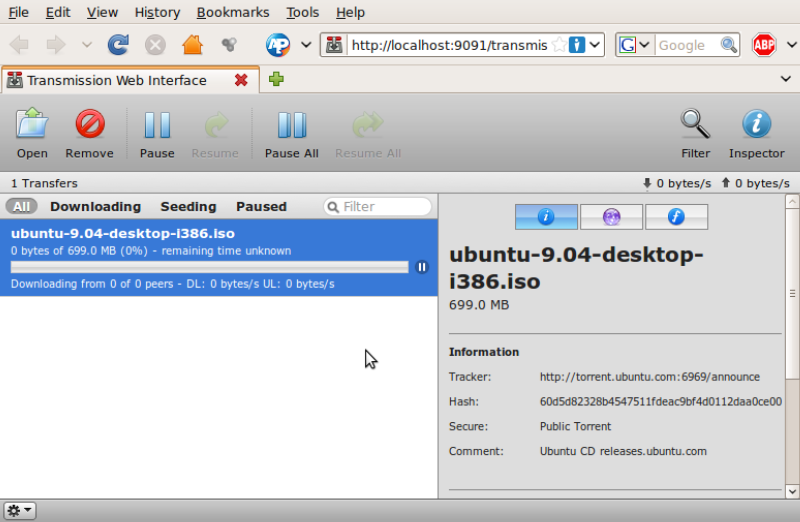
After configuring VPN and Transmission, follow these daily practices to maintain a safe torrent environment.
-
Keep Software Updated
-
Regularly update Transmission to the latest version. Updates often fix bugs and patch vulnerabilities.
-
Update UFO VPN client promptly to benefit from security and protocol improvements.
-
-
Download Only Trusted Torrents
-
Use known sources for torrent files. Verify checksums or user comments before downloading.
-
Avoid unknown or suspicious torrents to prevent malware.
-
-
Monitor VPN Status
-
Always check that UFO VPN is connected before starting Transmission.
-
Use auto-reconnect and kill-switch to handle unexpected drops.
-
-
Manage Bandwidth and Connections
-
In Transmission Preferences > Bandwidth, set reasonable upload/download limits.
-
Too many connections can slow your system or trigger ISP suspicion. Balance speed with stability.
-
-
Use Firewall Rules
-
Configure system firewall to allow Transmission only when UFO VPN is active. On Windows, set rules tied to VPN adapter. On macOS/Linux, use PF or iptables accordingly.
-
Block Transmission from accessing the internet outside VPN.
-
-
Disable IPv6 if Unsupported
-
If UFO VPN does not handle IPv6, disable IPv6 on your device to prevent leaks.
-
Alternatively, choose a VPN that supports IPv6 tunneling.
-
-
Secure Remote Access
-
If you use Transmission’s remote control, restrict it to local network or secure it with strong credentials and encryption.
-
Do not expose RPC port publicly without VPN and additional safeguards.
-
-
Scan Downloads
-
Use antivirus or malware scanners to check downloaded files before opening.
-
For archives, scan extracted content as well.
-
-
Use Blocklists and IP Filters
-
Update blocklists in Transmission to block known bad peers or monitoring IP ranges.
-
Combine with VPN to reduce contact with unwanted peers.
-
By following these best practices, you reinforce the secure setup from earlier sections. Combining Transmission settings with a reliable Transmission VPN ensures “Is Transmission Safe” is not just theoretical but real in daily use.
FAQs
Is Transmission Safe to use with a VPN?
Yes. When you configure Transmission correctly—bind it to the VPN interface, enable encryption, use kill-switch, and choose a trusted VPN like UFO VPN—Transmission is safe in terms of privacy and security.
How do I know if Transmission traffic is going through VPN?
Use an IP-check torrent or check external IP via a test torrent site. If the displayed IP matches your VPN server IP, traffic routes through VPN. Binding Transmission to the VPN adapter ensures it.
Can I use free VPNs for Transmission?
Free VPNs often have data limits, slow speeds, and may not support P2P. They can work for light testing. For stable and private torrenting, a service like UFO VPN is recommended.
What settings in Transmission help improve safety?
Enable peer encryption. Bind to VPN interface. Use blocklists. Disable or secure remote access. Update software regularly. Combine these with a VPN for Transmission.
Why is Transmission not connecting when VPN is on?
Common causes: missing interface binding, kill-switch misconfiguration, wrong VPN protocol, or server lacking P2P support. Check binding settings, switch to a P2P-friendly UFO VPN server, and test again.
Does UFO VPN support Transmission on all platforms?
UFO VPN offers clients for Windows and macOS. For Linux, follow the provided command-line or configuration guide. This ensures Transmission runs behind UFO VPN on major OS.
Is torrenting with Transmission legal?
Torrenting as a technology is legal. Downloading copyrighted content without permission is not. Always verify the legality of files you share or download. VPN protects privacy but does not legalize illegal content.
How often should I update Transmission and UFO VPN?
Update whenever new versions are released. Updates include security fixes and performance gains. After updates, recheck binding and kill-switch settings to ensure continued protection.
What if my ISP blocks VPN traffic?
Use UFO VPN’s obfuscated or stealth servers to bypass VPN blocks. If still blocked, consider using a mobile hotspot or alternative network. Always respect network policies.
Can I use split tunneling for Transmission?
If UFO VPN supports split tunneling, include Transmission in the VPN tunnel so only torrent traffic uses VPN. Other apps use direct connection. This helps manage bandwidth and keeps Transmission secure.
Should I disable IPv6?
If UFO VPN does not handle IPv6, disable IPv6 in system settings to avoid leaks. If VPN supports IPv6, ensure it is enabled and tested.
How do I secure remote access in Transmission?
Disable remote access if unused. If needed, set strong credentials and restrict allowed IPs. Always use VPN when accessing remotely to prevent exposure.

